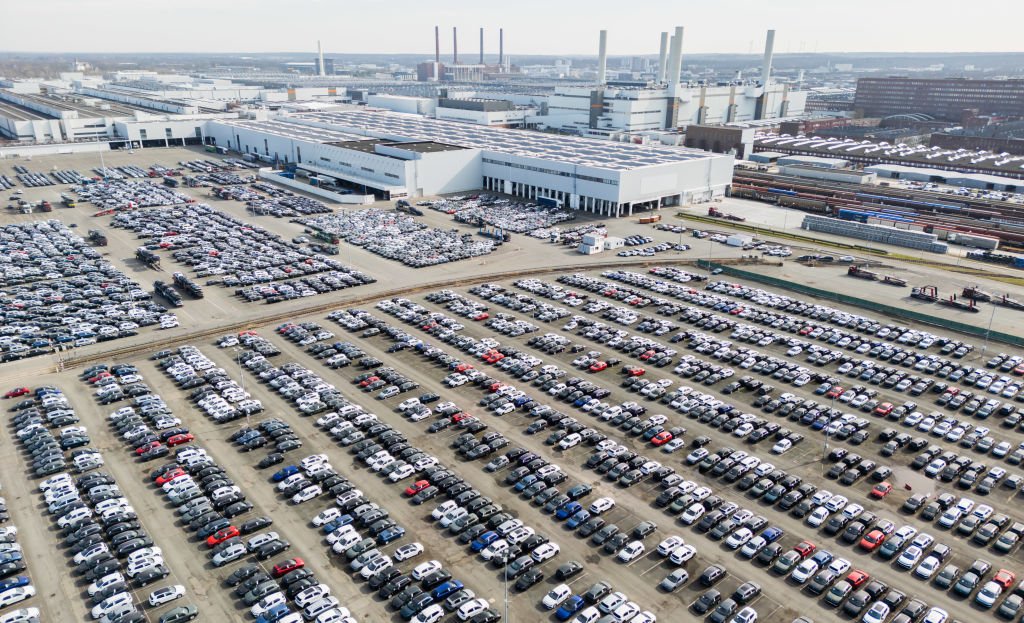Business sentiment among German companies improved slightly in August, a survey found on Monday, defying a barrage of bad news as the EU’s largest economy battles persistent economic stagnation, trade tensions, and potential austerity measures.
Germany’s Business Climate Index, a closely watched poll compiled by the Ifo Institute, a Munich-based think tank, rose to 89.0 this month, up from 88.6 in July. The increase, which beat analysts’ forecast of 88.7, came from stronger expectations about revenues over the next six months, which outweighed a modestly gloomier view of current conditions.
The survey comes amid growing fears that German businesses are more optimistic about their country’s prospects than is warranted by the economic data, with sweeping US tariffs and increasingly fierce competition from China posing a severe threat to Germany’s export-led manufacturers, especially its flagship auto sector.
Last week, Berlin’s federal statistical office reported that Germany’s GDP shrank by 0.3% in the second quarter of this year, a downgrade from last month’s initial estimate of a 0.1% contraction. The country’s output has largely stagnated since 2019 and is expected to remain flat again in 2025, making Germany one of the world’s worst-performing advanced economies.
Yet surveys suggest businesses are more upbeat than the data would justify. “It is unclear where this optimism is coming from,” Carsten Brzeski, head of macro at ING research, wrote on Monday, adding that it is “hard to see how” Germany will escape from “seemingly never-ending stagnation” before the end of the year.
A cacophony of concerns
Businesses’ “remarkable” confidence could, Brzeski suggested, be a result of firms downplaying the effects of Donald Trump’s levies or overestimating the impact of Friedrich Merz’s pledged fiscal stimulus.
Underscoring the latter point, Finance Minister Lars Klingbeil last week urged fellow ministers to draw up plans to slash more than €30 billion from the 2027 budget, equivalent to 1% of the country’s total federal spending.
In a letter seen by Reuters, Klingbeil suggested that the savings are necessary to offset steep increases in infrastructure and defence expenditure in next year’s budget, which is expected to triple the country’s borrowing costs and boost investment to record highs.
“The current political debate in Germany on possible austerity measures could undermine the – at least psychological – impact of the announced fiscal stimulus for infrastructure and defence,” Brzeski said, adding that any budget cuts will likely cause households and businesses to “hold back” on spending and investment.
In addition to fiscal and trade concerns, a strengthening euro has compounded German exporters’ woes by raising the price of EU goods relative to Chinese and American competitors. The euro’s value has increased 13% against the US dollar and 11% against the yuan since January.
Delayed duties
Perhaps even more crucially, it also remains unclear when German car exporters, the country’s industrial backbone, will benefit from the flat 15% levy agreed last month by Brussels and Washington. The industry currently faces a special US tariff rate of 27.5%.
The US is Germany’s top auto export destination, with 450,000 vehicles valued at €21.5 billion sent across the Atlantic last year, according to the US Department of Commerce.
An EU-US joint statement on the so-called ‘framework’ deal, released last week, states that the US car levies will be lowered “from the first day of the same month” that Brussels introduces legislation eliminating tariffs on all US industrial goods and a range of American food products.
German auto industry group VDA has stressed it is “imperative” for Brussels to “act swiftly” to lower the duties – although it also warned that a 15% tariff rate would still represent a “burden” for Germany’s auto industry. EU carmakers faced a 2.5% US levy prior to Trump’s return to the White House in January.
The European Commission, which oversees the bloc’s trade policy, appears to be responsive to automakers’ concerns.
“Our firm intention… [is] to present these legislative proposals and launch the process still this month,” EU Trade Commissioner Maroš Šefčovič told reporters last week. “I believe that this is welcome news for our car industry, [which] was bleeding a lot of cash over the last few months.”
A senior Commission official later clarified that the proposed legislation will not need to be approved by EU countries or the European Parliament before Washington lowers its auto levy.
“It’s only the proposal stage itself that will trigger the US to also move forward – so it is our input, not our output, that matters here,” the official said.
(mm)




